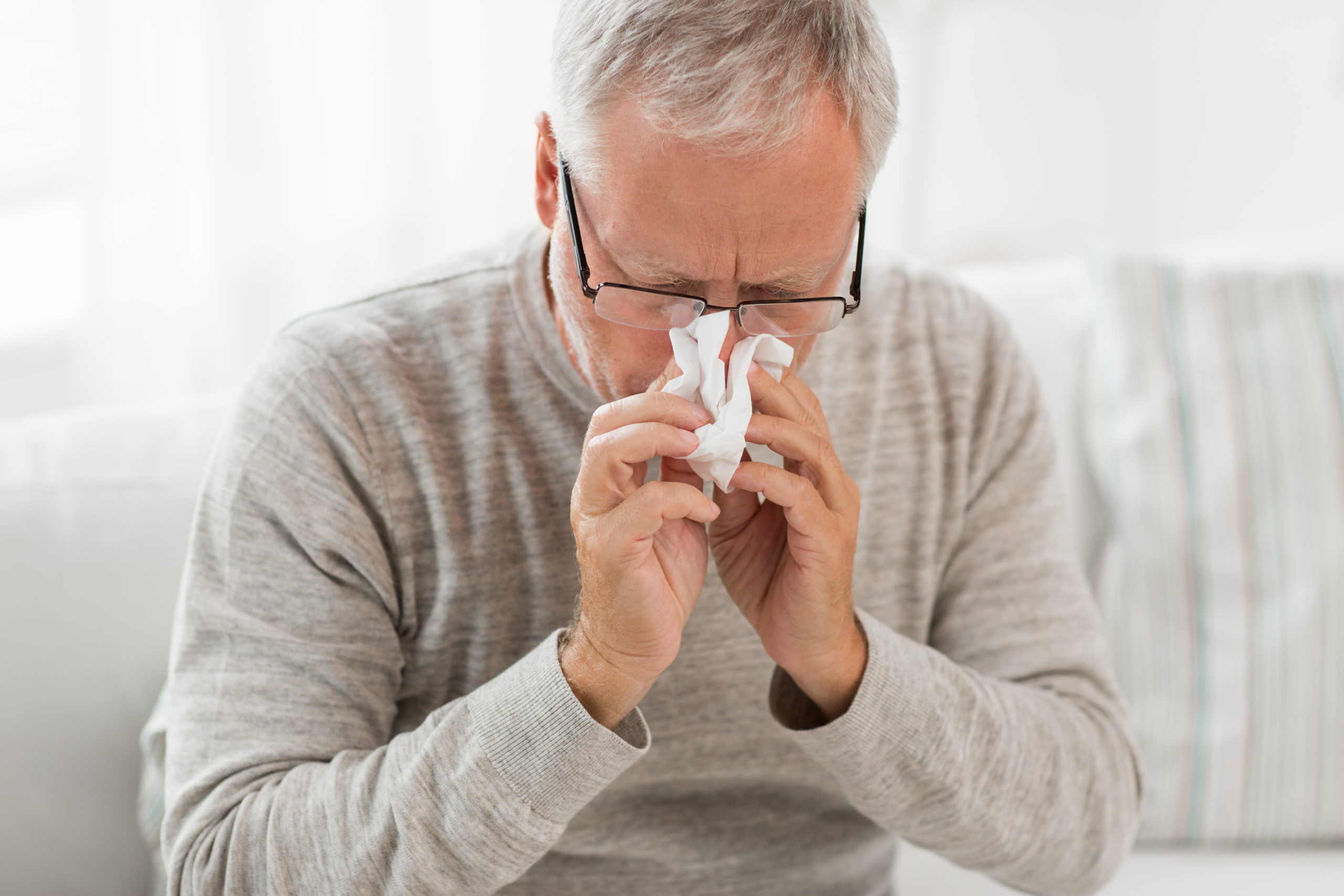Is it Allergies, a Cold or the Flu?

It is officially fall, which means fun, seasonal activities like pumpkin patches, apple orchards and hayrides are in full swing. As picturesque as the changing leaves are, for some of us the fall season also bring seasonal bugs and runny noses. Sadly, it’s not always easy to tell if you’re struggling with seasonal allergies, a cold or the flu, since many symptoms overlap. That’s why it’s important to know what the differences between all these cases are, so you can take the appropriate steps to keep yourself healthy.
Flu Symptoms
One of the biggest indicators that you are dealing with something more serious than just allergies is if you have a fever that is 100 degrees or higher. It is very rare to have a fever when you have a cold and you will never have a fever if you’re just dealing with allergies.
Other common symptom of the flu are headaches and severe aches and pains. You may also experience slight aches and pains with a cold, but these will become more intense when you have the flu.
Another clear indication that you have the flu and not just allergies is if you’re experiencing extreme exhaustion. This will usually occur at the beginning of your illness and can linger for weeks. It is very unlikely that you will experience this with allergies or a minor cold.
What Causes the Flu?
During the flu your respiratory system is attacked by a viral infection. Your nose, throat and lungs will become infected and cause you to feel run down. The flu virus travels through the air in droplets when someone that has the infection coughs, sneezes or talks. It’s possible to inhale the droplets directly or pick them up from an object and then transfer them to your eyes, nose or mouth.
To keep yourself healthy this fall season, you should schedule an appointment with your doctor to get the flu vaccination, as this could help reduce your risk of the flu and lower your chance of suffering from a severe case that requires a hospital stay.
Allergy Symptoms
As opposed to the flu, allergies are often less severe and trigger more minor symptoms. Allergies throughout the fall season typically lead to symptoms like a stuffy or runny nose, sneezing, watery eyes and itchy nose or eyes. These symptoms may also occur if you’re suffering from the flu, so it’s important to check your temperature and evaluate your energy levels to determine if allergies are, in fact, the culprit.
What Causes Airborne Allergies?
Allergies can have many causes, making it difficult to narrow down what exactly you are allergic to. Some common airborne allergy triggers include pollen, dust mites, animal dander and mold.
An allergy emerges when your immune system mistakes a harmless substance for a dangerous one and produces antibodies for the allergen. When your body is exposed to the allergen again, the antibodies attempt to fight it off, triggering the allergy symptoms you experience.
If you are able to determine what causes you to have allergic reactions, do your best to avoid known triggers. You can also consult your doctor about over the counter allergy medicines that can help alleviate your symptoms.
Stay Healthy this Fall at Advent Christian Village
At Advent Christian Village, the health and safety of residents is our top priority. This season, we know it’s even more important than ever before to protect residents from colds, flus and other viruses. Currently, we are doing everything we can to fight the spread of the coronavirus (COVID-19).
Our staff and vendors receive temperature checks daily, conduct daily health screenings and are required to wear masks and practice social distancing when interacting with others. Our other health protocols include frequently sanitizing surfaces that are touched by residents and staff, and our residents are reminded to wash their hands often and avoid touching their faces as much as possible. By adhering to CDC guidelines, we strive to keep all our residents and staff safe and healthy.
Contact us today at 1-800-647-3353 to learn more about our health and safety precautions and protocols.



